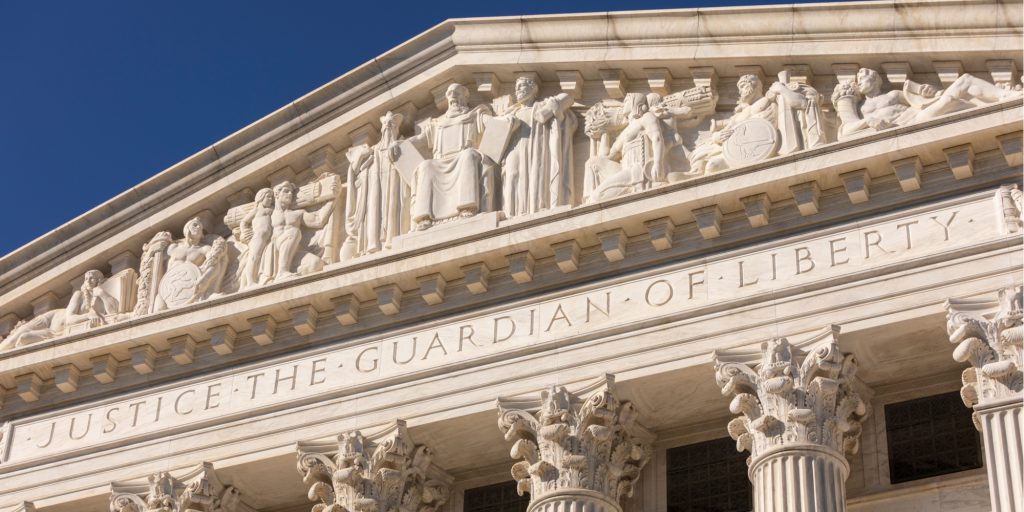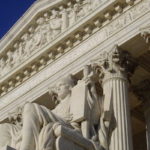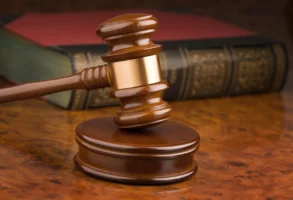
Published August 25, 2021
As I spelled out yesterday, the “important principles of judicial restraint and stare decisis” that Chief Justice Roberts set forth in his concurring opinion in Citizens United v. FEC (2010) ought to lead him to vote in Dobbs v. Jackson Women’s Health Organization to overrule Roe v. Wade and Planned Parenthood v. Casey. In this post, I will explain two respects in which the Chief’s jurisprudential principles make the case for him to overrule Roe and Casey vastly stronger than his case for overruling Austin v. Michigan Chamber of Commerce in Citizens United.
1. In Citizens United, the Chief concluded only that the “text and purpose of the First Amendment point in the same direction” (emphasis added): that, contrary to Austin, “Congress may not prohibit political speech, even if the speaker is a corporation or union.” By contrast, under the Chief’s jurisprudential principles, Roe and Casey are egregiously and screamingly wrong.
These (and other) passages from the Chief’s introduction to his powerful dissent in Obergefell v. Hodges (2015) operate equally as a damning condemnation of Roe:
The majority’s decision is an act of will, not legal judgment. The right it announces has no basis in the Constitution or this Court’s precedent. The majority expressly disclaims judicial “caution” and omits even a pretense of humility, openly relying on its desire to remake society according to its own “new insight” into the “nature of injustice.” As a result, the Court invalidates the marriage laws of more than half the States and orders the transformation of a social institution that has formed the basis of human society for millennia, for the Kalahari Bushmen and the Han Chinese, the Carthaginians and the Aztecs. Just who do we think we are?
It can be tempting for judges to confuse our own preferences with the requirements of the law. But as this Court has been reminded throughout our history, the Constitution “is made for people of fundamentally differing views.” Lochner v. New York (1905) (Holmes, J., dissenting). Accordingly, “courts are not concerned with the wisdom or policy of legislation.” Id. (Harlan, J., dissenting). The majority today neglects that restrained conception of the judicial role. It seizes for itself a question the Constitution leaves to the people, at a time when the people are engaged in a vibrant debate on that question. And it answers that question based not on neutral principles of constitutional law, but on its own “understanding of what freedom is and must become.” I have no choice but to dissent.
Understand well what this dissent is about: It is not about whether, in my judgment, the institution of marriage should be changed to include same-sex couples. It is instead about whether, in our democratic republic, that decision should rest with the people acting through their elected representatives, or with five lawyers who happen to hold commissions authorizing them to resolve legal disputes according to law. The Constitution leaves no doubt about the answer.
The very fact that the majority in Casey refused to acknowledge that Roe was egregiously wrong means that its stare decisis analysis was fundamentally unsound. Further, the Chief’s arguments in Citizens United that stare decisis does not support retaining a precedent by reconceiving the grounds for that precedent and that the Court “cannot keep [a] precedent alive [by] jury-rigging new and different justifications to shore up the original mistake” apply even more strongly to Casey.
2. Citizens United differs from Dobbs in one major respect that should matter a lot to the Chief—in particular, to his deep commitment to (as he puts it in Obergefell) “a restrained conception of the judicial role.” By reversing Austin, the Court in Citizens United forbade the democratic processes from enacting certain types of laws (laws that allow political speech to be banned based on the speaker’s corporate identity). By reversing Roe and Casey, the Court in Dobbs would restore abortion policy to the democratic processes.
Judicial restraint, as I use the term and as I believe the Chief understands it, emphasizes the limits on the role of the federal courts in our system of separated powers and federalism. Its opposite judicial activism succinctly conveys the charge that the courts have wrongfully invaded the realm of representative government by, for example, inventing supposed constitutional rights that trump democratic enactments.
Proponents of judicial restraint typically call for judges to defer to democratic enactments unless those enactments have been clearly shown to be unconstitutional. There is of course plenty of room among proponents of judicial restraint to debate which interpretive principles should govern, what the proper standard of clarity is, and thus where the line between proper judicial restraint and improper judicial passivism (excessive deference to the democratic processes) lies.
Considerations of stare decisis are often confused (frequently deliberately, it would seem) with judicial restraint. But stare decisis is generally an intrajudicial doctrine, not a doctrine about the role of the courts in a democratic republic. When the Supreme Court addresses a question that it has addressed before, it accords a degree of respect, or deference, to its previous treatment of the question, partly from the presumption that the Court carefully addressed the question the first time, partly from the impracticability of addressing every question anew in every case.
For the Chief and other proponents of judicial restraint, stare decisis considerations should be especially weak when—as with Roe and Casey—the precedent under examination has usurped the democratic processes.
Ed Whelan is a Distinguished Senior Fellow of the Ethics and Public Policy Center and holds EPPC’s Antonin Scalia Chair in Constitutional Studies. He is a regular contributor to NRO’s Bench Memos. He is co-editor of The Essential Scalia: On the Constitution, the Courts, and the Rule of Law.
Edward Whelan is a Distinguished Senior Fellow of the Ethics and Public Policy Center and holds EPPC’s Antonin Scalia Chair in Constitutional Studies. He is the longest-serving President in EPPC’s history, having held that position from March 2004 through January 2021.












